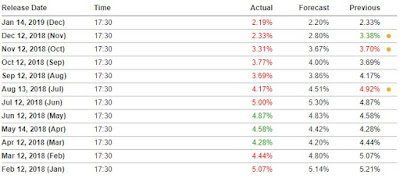A tax manifesto
There is an urgent need, especially in India, to take a novel perspective on the nature of taxes. Economic activities of both the public, and private sectors create purchasing power in the economy. However, due to the sovereign powers of the Government, private sector cannot function independently. It is dependent upon the government's ability to provide it with infrastructure, educated workforce, security in the form of an army/ police etc.
For this reason, there is an element of partnership with the government. In other words, when the government says there is an income tax of 40%, it is in effect saying, that our contribution to your profits is 40%.
Now while this may be true for a resource intensive industry like a steel or power plant, it is not so for an IP driven business, or for capital appreciation earned by a risk taker in the financial markets. It is morally unjust for the government to see itself as a nearly equal partner in such cases.
Therefore when the government gives an upcoming industry like Indian IT (in the 2000s anyway) a tax holiday, it was effectively saying that we do not need to be compensated for our contribution to your business (despite large swathes of land being made available to IT cos).
There is also another way to look at Income taxes. Instead of looking at taxes as a source of revenue for the Government, we should see them as allocation of purchasing power. Taxes are the means of transferring purchasing power from the people to the bureaucrats.
When the government taxes at say 45% (in England for example), it is basically allocating nearly half of the purchasing power generated in the economy to itself. It is in effect telling people, that they are not spending that money correctly, and that government will do a better job of allocating it. This is indeed a surprising stance, i.e. stating that a career bureaucrat would do a better job of allocating capital, than someone who actually took the risk to create it.
And the government has virtually unbridled powers to do this. India has had maximum tax rates of nearly 100% not too long ago. Basically the government is telling the risk taker, the entrepreneur that he/she had almost no input in creating purchasing power and it was virtually all due to the government. This is nothing but closet nationalization of efforts, and did more to destroy talent and entrepreneurship, and encourage unaccounted wealth than anything else. Because the entrepreneur knew factually that the purchasing power he added was entirely his efforts and not the governments. The worst side effect of an overbearing government is that it actually gives a moral underpinning to corruption. Corruption and black money become a non-cooperation movement. And it is a habit that is difficult to break, even when the morality of the crime has worn off.
Let us look now at the purchasing power rationale. Why does the government need to transfer purchasing power to itself? In times of war or natural calamity it is quite understandable. Not all people are enlightened enough to donate money for the extant crisis and the government must take reins in their hands, for lack of a better alternative.
But in times of peace, or a fairly steady state economy, there is no point to taking purchasing power away from the people. In fact leaving that money in the hands of the people will have the same impact. The person can either spend it, and add to the GDP, or save it and allow a more informed lender (like a bank) to lend it for infrastructure. Or the person could take risk by buying equity in a project or a company and thus benefit from the growth of the economy. This portion of taxes is best left with the people.
Now, when the person takes risk, he should be comfortable, that his partner (the government) who takes his yearly cut has actually done his job well and vetted that the opportunities are genuine and not scams. What we are witnessing today in India is that the partner (the bureaucrats) has slacked off, or been corrupt. They have not vetted the opportunities leading to banks facing NPLs. To compensate for this bureaucracy created crisis, the government will keep taxes high, and even perhaps raise them. They will target all sources of revenue for the ordinary person, because now the government is not looking for taxes as a partner, or as transfer of purchasing power, but as an extortionist.
There is absolutely no equation of power between a sovereign and the subject. The subject pays when the subject makes a mistake (ie bankruptcy, going out of business etc). But the subject also pays when the sovereign makes a mistake! This is sin.
The government should state clearly, what portion of taxes are in the nature of a partner and what portion of taxes are to transfer purchasing power from the people to itself, and why it feels a bureaucrat knows more about capital allocation than the actual wealth generators. The remaining portion of the taxes are in the nature of extortion.



Comments
Post a Comment